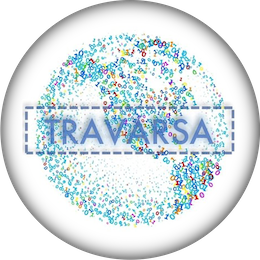Instagram has crossed the threshold of being a place to watch extremely filtered....
Read MoreHow to prepare for a Job Interview?

Preparing for a job interview is more than just answering questions, it’s about creating a lasting impression. In the competitive landscape of career advancement, meticulous preparation is the key.
This article unfolds the essential steps for offline interviews, offering insights into the nuances that go beyond the surface. Master the art of expressing your skills, enthusiasm, and professionalism, setting the stage for a transformative interview experience that could shape your professional destiny.
How to prepare and get started for a Job Interview ?
- Study the Job Description Carefully:
- Do: Analyze the job requirements and responsibilities.
- Do: Align your skills and experiences with the job.
- Do: Prepare specific examples showcasing your achievements.
- Don’t: Provide generic responses; tailor your preparation to the role.
- Research the Company:
- Do: Explore the company’s website, social media, and recent news.
- Do: Understand the company’s values and mission.
- Do: Identify key team members and their roles.
- Don’t: Overlook the company’s culture; consider it in your preparation.
- Update and Print Resumes, include any additional required documents:
- Do: Print multiple copies of your updated resume.
- Do: Include a professional-looking header with your contact information.
- Don’t: Bring outdated resumes; keep your document current.
- Prepare Questions:
- Do: Develop thoughtful questions about the company and role.
- Do: Ask about the team dynamics and expectations.
- Don’t: Ask questions solely about salary or benefits during the first interview.
- Practice Responses:
- Do: Rehearse answers to common interview questions.
- Do: Focus on emphasizing your achievements and problem-solving skills.
- Don’t: Memorize responses; aim for natural and authentic communication.
- Confirm Interview Details:
- Do: Verify the interview date, time, and location.
- Do: Plan your transportation and arrive 15-20 minutes early.
- Don’t: Assume you know the location; double-check for any changes.
- Organize Documents:
- Do: Gather necessary documents in a professional folder.
- Do: Include extra copies of your resume and a list of references.
- Don’t: Bring irrelevant materials; keep it focused and organized.
- Dress Appropriately:
- Do: Wear professional attire suitable for the company culture.
- Do: Choose neutral colors and avoid flashy accessories.
- Don’t: Underestimate the impact of first impressions; dress for success.
- Plan Arrival:
- Do: Research the interview location and plan your route.
- Do: Factor in potential traffic or public transportation delays.
- Don’t: Arrive late; punctuality is crucial for a positive impression.
- Turn Off Devices:
- Do: Silence or turn off your phone and any other electronic devices.
- Do: Bring a notepad and pen for taking notes.
- Don’t: Allow your devices to distract you during the interview.
- Demonstrate +ve Body Language:
- Do: Greet and offer a firm handshake and maintain good posture.
- Do: Smile and make eye contact throughout the interview.
- Don’t: Display nervous habits like fidgeting or avoiding eye contact.
- Listen Actively:
- Do: Listen carefully to each question before responding.
- Do: Clarify any uncertainties before answering.
- Don’t: Interrupt the interviewer; patience is a virtue.
- Highlight Achievements:
- Do: Share specific examples of your accomplishments.
- Do: Relate your experiences to the needs of the company.
- Do: Carry previous work samples and references.
- Don’t: Brag excessively; focus on providing relevant information.
- Express Enthusiasm:
- Do: Convey genuine interest in the position and company.
- Do: Articulate how your skills align with the company’s goals.
- Don’t: Sound disinterested or overly casual; maintain professionalism.
- Thank-You Email:
- Do: Send a thank-you email within 24 hours expressing gratitude.
- Do: Reiterate your interest in the position and the company.
- Don’t: Forget to personalize the email; reference specific aspects of the interview.
- Reflect and Evaluate:
- Do: Reflect on your performance after the interview.
- Do: Identify areas for improvement in your responses.
- Don’t: Be overly critical; use reflection as a constructive tool.
- Follow Up:
- Do: Send a polite follow-up email if you haven’t heard back.
- Do: Inquire about the next steps in the hiring process.
- Don’t: Be impatient; allow the appropriate time for a response.
- Post-Interview Portfolio:
- Do: Update your portfolio with insights from the interview.
- Do: Showcase any additional work or achievements discussed.
- Don’t: Overwhelm with excessive materials; keep it relevant.
- Continuous Learning:
- Do: Learn from each interview experience.
- Do: Seek feedback and incorporate it into your future preparations.
- Don’t: Assume each interview is the same; adapt and improve.
Conclusion:
Remember, the interview process is not merely a question-and-answer session but an opportunity to present the best version of yourself. From understanding the company’s ethos to meticulously planning your arrival, each step contributes to the symphony of a successful interview.
As you reflect on the insights provided, keep in mind that learning is a perpetual companion on your career journey. Embrace the continuous improvement mindset, seeking feedback and adapting your approach based on each interview experience.
In the world of offline interviews, where face-to-face interactions leave lasting impressions, the importance of a well-prepared, professional demeanor cannot be overstated. The dos and don’ts guide you through the nuances, ensuring you showcase your skills and personality effectively.
As you embark on your next interview, armed with research, practiced responses, and a polished portfolio, trust in the preparation you’ve invested. Your journey toward career advancement is not just about securing a job but about aligning yourself with an opportunity that resonates with your goals.
With the comprehensive flowchart as your guide, step confidently into the interview arena. You’ve honed your skills, navigated the preparation process, and are ready to make a lasting impact. Your success in the interview room is not just a possibility; it’s the natural progression of a well-prepared candidate seizing their moment.
Tag Cloud : why interview process is so important for the students, interview selection letter, how to reply for interview selection email, interview, process for employers, interview selection and recruitment, interview questions, interview questions and answers, interview skills, interview questions for freshers, human resources interview questions, hiring process, questions to ask in an interview, common interview questions. job interview questions
How to Start a Career into Cyber Security?
Cyber Security Roadmap: Career Path. Embark on a cybersecurity career journey with our....
Read MoreHow to start your career as a Front-End Web Developer ?
Elevate your career with Front-End Web Development. From HTML to frameworks, certifications guide....
Read MoreIntroduction of Various Databases and usage
Explore diverse databases: MySQL, PostgreSQL, MongoDB, DynamoDB, and more. Learn their uses in....
Read MoreHow to start your career in App Development ?
Unlock the path to a thriving app development career with our guide. From....
Read MoreAdvance PR Strategies in Marketing: Benefits & Tools
Discover the power of PR in marketing. Learn about the benefits & tools....
Read More





